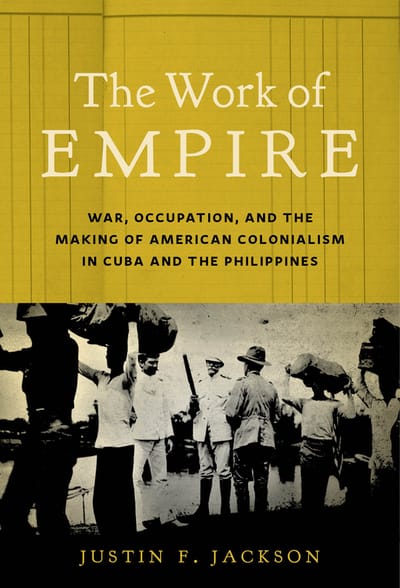The Work of Empire
War, Occupation, and the Making of American Colonialism in Cuba and the Philippines
In 1898, on the eve of the Spanish-American War, the US Army seemed minuscule and ill-equipped for global conflict. Yet over the next fifteen years, its soldiers defeated Spain and pacified nationalist insurgencies in both Cuba and the Philippines. Despite their lack of experience in colonial administration, American troops also ruled and transformed the daily lives of the 8 million people who inhabited these tropical islands.
How was this relatively small and inexperienced army able to wage wars in Cuba and the Philippines and occupy them? American soldiers depended on tens of thousands of Cubans and Filipinos, both for military operations and civil government. Whether compelled to labor for free or voluntarily working for wages, Cubans and Filipinos, suspended between civilian and soldier status, enabled the making of a new US overseas empire by interpreting, guiding, building, selling sex, and many other kinds of work for American troops. In The Work of Empire, Justin Jackson reveals how their labor forged the politics, economics, and culture of American colonialism in Cuba and the Philippines and left an enduring imprint on these islands and the US Army itself. Jackson offers new ways to understand the rise of American military might and how it influenced a globalizing imperial world.

Buy the Book
To purchase online via an independent bookstore, visit Bookshop.org.